nothing here but a 2024 retrospective
issue 241 - 24th December, 2023
CJW: Welcome back. Hopefully you're enjoying whatever holiday you celebrate around this time of year, even if that holiday is just seeing friends and/or family, or just some time off from work.
Here you'll find a batch of noteworthy articles and more - if you missed them the first time around, here's your chance to catch up while (hopefully) getting some much needed downtime.
As ever, if you want to support us, you’ve got a couple of options:
Both give you access to the full bonus archive, as well as new bonuses as they are posted. Another thing you can do to help spread the word is forward this email to someone you think might enjoy it.
Daniel Harvey
Designer, writer, provocateur. Pro-guillotine tech critic
Climate Change and The Environment
The Incredible Disappearing Doomsday by Kyle Paoletta at Harper’s Magazine
It is, I promise, not quite as bad as you once imagined, but it is worse than you’ve lately been led to believe. The seas will rise, the summers will get hotter. There will be more red-sky days, more storms, more jungles turned into savannas and savannas turned into deserts. Global emissions may peak in a few years, but the subsequent decline will probably be too gradual to limit warming to even 2.5 degrees Celsius—the level that the United Nations projects the world’s net-zero pledges currently put it on track to reach. None of that constitutes an apocalypse, but it does suggest a world destabilized by hundreds of millions of people going hungry and being forced to flee their homes. The media’s job, in this moment, is not to raise alarms or offer assurances. It is to document the ongoing mutilation of our planet, and to push citizens, politicians, and corporations to stanch the carnage. Everything else is style that detracts from the substantive peril of the present.
The world has yet to demonstrate the political will to save itself; stories that give readers the misleading impression that things will be just fine are overcorrecting for our prior fatalism, and risk replacing it with complacency. Writers like Wallace-Wells want us to believe that their own doom-peddling has chastened the world into a response that hasn’t actually occurred. The best course for many journalists may be to take a break from narratives and reconnect with the science.
Bold emphasis mine. This is a great long-read media criticism piece on the changing story of climate change coverage DESPITE, as Corey added, “little progress being made in terms of political will, corporate accountability, or fossil fuel use.”
//
Green Colonialism by Isobel Cockerell at Noema
Environmentalists, Indigenous groups and academics say that what politicians and energy executives are really advocating for is a technofix for the climate crisis: simply trading out one extractive industry for another without challenging the systems that got us here in the first place. And it could bring untold collateral damage upon one of nature’s last refuges in Europe, alongside the Sami, the region’s last Indigenous culture.
When I met Tor Lennart Tuorda, a Sami photographer who works as an archivist at the Sami museum, he put it more bluntly. “It’s only shit talk, this green transition,” he said. “It’s only a way to extract even more. You can call it green colonialism instead. That’s more true.”
“This is an example of how stupid it is, that we as one creature, among millions of creatures, think we can be larger than nature. It’s something that makes me laugh,” he said. “It isn’t the sun’s fault, and it isn’t the planet’s fault, that our climate is going where it’s going.”
A share from a recent issue. Lots of interesting ground covered here from the exploitative nature of the green transition to the hubris of geoengineering driven by capital. As long as nations like the US and Sweden abdicate responsibility to industry to solve the climate crisis we’re going to continue to see opportunistic approaches that harm indigenous communities in favour of profit.
Geopolitics and Empire
Elon Musk’s Shadow Rule by Ronan Farrow at The New Yorker
In the past twenty years, against a backdrop of crumbling infrastructure and declining trust in institutions, Musk has sought out business opportunities in crucial areas where, after decades of privatization, the state has receded. The government is now reliant on him, but struggles to respond to his risk-taking, brinkmanship, and caprice. Current and former officials from nasa, the Department of Defense, the Department of Transportation, the Federal Aviation Administration, and the Occupational Safety and Health Administration told me that Musk’s influence had become inescapable in their work, and several of them said that they now treat him like a sort of unelected official. One Pentagon spokesman said that he was keeping Musk apprised of my inquiries about his role in Ukraine and would grant an interview with an official about the matter only with Musk’s permission. “We’ll talk to you if Elon wants us to,” he told me. In a podcast interview last year, Musk was asked whether he has more influence than the American government. He replied immediately, “In some ways.” Reid Hoffman told me that Musk’s attitude is “like Louis XIV: ‘L’état, c’est moi.’”
Musk critics will be familiar with a lot of broad strokes and even fine details here. Still Farrow does an excellent job pulling all the disparate strings together about Musk’s outsized influence on the US Government. Which he’s bought and paid for on the back of American tax dollars via subsidies.
Ignore all the other Musk stories from this year and read this one instead.
Tech and Design
Is the AI sentience question useful to ask? By Matt Webb
Yes it’s important that we know when, in 50 years or 5 years, the machines wake up and we meet the first conscious AI. But if we then vary in our treatment of that AI, we’ll then have to ask what’s different about chickens, talking dogs, the Whanganui River in New Zealand which was granted legal personhood (BBC, 2017), the first uploaded nervous system - the open source OpenWorm virtual nemotode project - the entire USA as a conscious entity, and well, each other.
Definitely useful questions to ask.
In other people’s framing the question can be a bit tsch-y and meant to distract from very real AI harms happening now. But Matt is one of the good ones. Here he uses the question to expand how we might think about animal sentience and in Corey’s words “come up with answers that fundamentally change how we share this world with the rest of its inhabitants.”
//
The Imminent Danger of A.I. Is One We’re Not Talking About by Ezra Klein at the NYTimes
“I tend to think that most fears about A.I. are best understood as fears about capitalism,” Chiang told me. “And I think that this is actually true of most fears of technology, too. Most of our fears or anxieties about technology are best understood as fears or anxiety about how capitalism will use technology against us. And technology and capitalism have been so closely intertwined that it’s hard to distinguish the two.”
We are talking so much about the technology of A.I. that we are largely ignoring the business models that will power it. That’s been helped along by the fact that the splashy A.I. demos aren’t serving any particular business model, save the hype cycle that leads to gargantuan investments and acquisition offers. But these systems are expensive and shareholders get antsy. The age of free, fun demos will end, as it always does. Then, this technology will become what it needs to become to make money for the companies behind it, perhaps at the expense of its users. It already is.
Watch as Ted Chiang slowly and gently removes the neoliberal scales from Ezra Klein’s eyes. Of course a number of us have been talking about this very issue for a very long time. Still, Chiang is one of the sharpest critics of this wave of AI so it’s still very much a good read.
//
How Facebook and Instagram became marketplaces for child sex trafficking by Katie McQue, Mei-Ling McNamara The Guardian
But over the past two years, through interviews, survivor testimonies, US court documents and human trafficking reporting data, we have heard repeated claims that Facebook and Instagram have become major sales platforms for child trafficking. We have interviewed more than 70 sources, including survivors and their relatives, prosecutors, child protection professionals and content moderators across the US in order to understand how sex traffickers are using Facebook and Instagram, and why Meta is able to deny legal responsibility for the trafficking that takes place on its platforms.
While Meta says it is doing all it can, we have seen evidence that suggests it is failing to report or even detect the full extent of what is happening, and many of those we interviewed said they felt powerless to get the company to act.
An appalling read that you should do with care. As Marlee expanded on in a comment “Its so frustrating to know that while Meta is fast and furious to restrict and delete the profiles of legitimate, of-age sex workers, they are so resistant to shutting down this bullshit, ie: THE REAL FUCKING PROBLEM.”
Labor and Economics
France’s ‘Robin Hood’ Energy Workers Are Sending Cheap Electricity to Schools and Hospitals by Olly Haynes at Novara Media
Fabrice Coudour, Federal Secretary in charge of protest action in the CGT Federation for Mines and Energy, told Novara Media that electricians and gas engineers “can perform technical actions that render electricity free or very cheap to public buildings like hospitals, creches and schools.” They can cut the power to “those that we judge to be non-essential, like the offices of officials who do not want to hear what is being said in the streets”. In February, Cyrille Isaac-Sibille, an MP aligned to the presidential majority, who supports the unpopular pension reform, found the power to his offices had been cut, by workers in the local CGT branch in Lyon.
A great reminder from French energy workers about the impact of protest and solidarity. Not quite the guillotine but it’s a start. And a reminder to those in power, in Marlee’s words we can “hit ‘em where it hurts: the juice.”
Health, Cooking and Related
Covid Roulette by George Monbiot
We also know that, with every new exposure, we are more likely to suffer adverse effects. A massive study in the US found that the risk of brain, nerve, heart, lung, blood, kidney, insulin and muscular disorders accumulates with every reinfection. The impacts of long Covid, according to health metrics researchers, are “as severe as the long-term effects of traumatic brain injury”. Now that we know how the virus attacks our cells, “traumatic brain injury” looks less like an analogy than a description. The outcomes can be devastating, ranging from extreme fatigue and breathlessness to brain fog, psychotic disorders, memory loss, epilepsy and dementia.
Great piece from Mobiot earlier in the year on how it’s far too dangerous for everyone to be throwing in the fucking towel. We know so very little about the long-term impact on all the systems of the body but what we do know (see above) is unsettling to say the least.
Podcasts & Videos & Art
'White Gladis' the Orca raising a whale army to attack yachts
Hard to believe it's only been a few months since the summer of the whale. Team Orca for lyfe.
//
Silicon Valley Is Destroying the World
It’s no coincidence that Stanford University was founded in Palo Alto, California, where many decades later scores of tech companies also got their start. Palo Alto is the birthplace of the “Palo Alto system,” an approach to training racehorses that attempted to speed up the process by applying techno-scientific principles and injecting lots of cash. This ethos of optimization, argues the writer Malcolm Harris, defined Stanford, which in turn helped define Silicon Valley and the ideology it has spread throughout the world.
A short, sharp podcast on the (literally) murderous, eugenic, right-wing roots of Silicon Valley with Malcom Harris author of Palo Alto: A History of California, Capitalism, and the World.
//
Trashfuture - Edict of Brainworms
We take an in depth look at a an article by Henry Kissinger, Eric Schmidt, and Daniel Huttenlocher about how AI is going to re-catholicise the entire world, and turn Patagonia vest nerds into a class of priests.
Fun takedown on the criti-hype surrounding the new AI hype bubble.
//
Hannah Ritchie on Keeping Hope for the Planet Alive
Environmental researcher Hannah Ritchie joins Sean Carrol on his podcast to discuss the importance of angry optimism. A topic we’re big boosters of around here.
//
Hardly Working: Are we the NPCs (non-playable characters) of our own system? by Regine, we-make-money-not-art.com
The artwork is by Total Refusal, a collective of artists (Michael Stumpf, Leonhard Müller, Robin Klengel, Jona Kleinlein, Adrian Haim and Susanna Flock) who define themselves as “a pseudo-Marxist media guerilla.” That certainly got my attention. Their practice consists in appropriating mainstream video game material. They scrutinise it, look behind its sleek, realistic aesthetic and uncover its covert political apparatus.
The work, Total Refusal explains, probes some of the issues posed by labour in late-stage capitalism. Are our bullshit jobs any more glorious? Are we the NPCs of our own system? How absurd does human labour have to be in order to ensure social order? Can we start glitching, individually and collectively?
I’m always keen on art/essays or whatnot that explore how the protestant work ethic is embodied in modern gaming.
Games
Eat The Reich
https://www.youtube.com/watch?v=F2OUs7V7SFI
Eat The Reich is a new RPG making the rounds on Kickstarter. Think Inglorious Basterds but with Vampires. Looks fun. Gizmodo has an interview with the creators.
Marlee Jane Ward
also Mia Walsch. Writer & visual artist. Middle-aged greying goth. Bleak as.
Bonuses
Bleak Books are for Bleak Girls
Wherein I discuss the 90’s Australian YA book Galax Areana, and the roots of my bleakness.
Climate Change and The Environment
Tripping for the Planet: Psychedelics and Climate Activism
In the last year, at least two peer-reviewed studies have found evidence that psychedelics may influence pro-environmental behaviors. Another philosophical paper published last year argued in favor of psychedelics to help solve our environmental problems. Author Michael Pollan has even spoken to the power of psychedelics in dismantling authoritarianism or inducing closer relationships to nature—akin to the left-wing countercultural movements of the ’60s and ’70s psychedelics are popularly associated with. Meanwhile, brain scientists have examined whether psychedelics cause “neuroplasticity,” or the nervous system’s ability to change its activity and structure. Other people are more skeptical, pointing to the history that psychedelics have with the right wing, in which neo-Nazi figures have credited psychedelic plants and drugs as their source of inspiration.
Clearly, interest in these psychedelics is not dying down anytime soon. As we enter the so-called psychedelic renaissance of the 21st century, Indigenous peoples are growing wary. The history of psychedelics does not begin with Aldous Huxley and Albert Hofmann; its roots lie in the sacred multi-millennial traditions of Indigenous medicine and ceremony. Could the future of psychedelics lie in shaping environmental movements?
While it’s telling that us white folks need chemical assistance to care about and connect with climate issues, it might also be a case of ‘whatever helps’, considering the crisis we’re in.
//
The Sriracha Shortage Is a Very Bad Sign - Katherine J. Wu at The Atlantic
The sriracha shortage is hardly the worst crop crisis that’s being fueled by climate change. For years, Michigan cherries have been suffocating in too-high temperatures, while Florida citrus have been obliterated by hurricanes; India’s wheat crops have roasted, while rice around the world has been double-teamed by floods and heat waves. But to now see peppers in peril is its own special burn. Bred in some of the world’s warmest regions, chilis have long been a poster child of heat tolerance. They, more than so many other plants, were supposed to be okay. Now, though, as temperatures get more scorching and droughts continue to parch the planet, “I think we are going to see this more often,” Guillermo Murray-Tortarolo, a climate scientist at the National Autonomous University of Mexico, told me. Sriracha’s troubles may turn out to be a bellwether for even more flavorless times to come.
While I love that the phrase ‘double-teamed’ is in an Atlantic article, this article was pretty depressing. Next up, coffee.
Science and Space
Covid hunters: the amateur sleuths tracking the virus and its variants by Linda Geddes at The Guardian
In common with other self-taught Covid sleuths, Hisner has no formal education in virology – just a knack for spotting patterns and the motivation to wade through reams of genetic data each day. Now with several years of experience under their belts, experts argue that such individuals have become a crucial component of global virus surveillance.
And their work has become ever more important, thanks to a drop in the number of genetic sequences being shared by many countries and a narrow focus on sequences from hospital patients. With at least 1,700 versions of Omicron co-circulating and continuing to evolve, the worry is that some of them may recombine to create a hybrid virus with unpredictable consequences.
Geopolitics and Empire
Adrift by Renata Brito and Felipe Dana at The Associated Press
Around 6:30 a.m. on May 28, 2021, a couple of miles from Belle Garden Beach on the Caribbean island of Tobago, a narrow white-and-blue boat drifted onto the horizon. As it wobbled back and forth, fish gathered, feeding on the barnacles that had grown below the surface. From a distance, it seemed no one was aboard. But as fishermen approached, they smelled death. Inside were the decomposing bodies of more than a dozen Black men. No one knew where they were from, what brought them there, why they were aboard — and how or why they died. No one knew their names. What is clear now, but wasn’t then, is this: 135 days earlier, 43 people were believed to have left a port city across the ocean in Africa. They were trying to reach Spain’s Canary Islands. But they never arrived. Instead, they ended up here, on the other side of the Atlantic. They weren’t the only ones.
This article lives in my mind, maybe forever.
Society and Culture
Where the Sidewalk Ends by Robin Kaiser-Schatzlein at Lux
Cars are essential infrastructure in Alabama. There is virtually no public transportation, and the cities are not walkable. This is deliberate. When the state passed its first gas tax in 1950, politicians stipulated that the proceeds could fund only roads and bridges, not public transit. The racism and classism of that decision, in the state that would see the Montgomery bus boycott just a few years later, is no coincidence. Public transit is a powerful tool to redistribute wealth and power. One 60-year-old Selma resident I spoke with remembers when there was still a bus system in Montgomery, which she called the “bloodline” of the city. Budget cuts in the 1980s — blowback from the boycott — starved the system completely. “They gave us the bus seat,” she said, “but they took the damn bus!”
On one man's plan for mutual aid via vehicle repair. And also communism.
//
Influencer Parents and The Kids Who Had Their Childhood Made Into Content by Fortesa Latifi at Teen Vogue
Claire, whose name has been changed to protect her privacy, has never known a life that doesn’t include a camera being pointed in her direction. The first time she went viral, she was a toddler. When the family’s channel started to rake in the views, Claire says both her parents left their jobs because the revenue from the YouTube channel was enough to support the family and to land them a nicer house and new car. “That’s not fair that I have to support everyone,” she said. “I try not to be resentful but I kind of [am].” Once, she told her dad she didn’t want to do YouTube videos anymore and he told her they would have to move out of their house and her parents would have to go back to work, leaving no money for “nice things.” When the family is together, the YouTube channel is what they talk about. Claire says her father has told her he may be her father, but he’s also her boss. “It’s a lot of pressure,” she said. When Claire turns 18 and can move out on her own, she’s considering going no-contact with her parents.
Your life on display without your consent? Horrifying.
//
The Controversial King of Hardcore Climbing
Perhaps as important as the money is the democratization of certain star-making tools now available to everyone. For instance, Mingma David has his own social media brand, which makes it impossible to lump him together with other Sherpas as “the help.” This is the biggest thing Nims has changed; he’s shifted the gravity in the room so the Sherpas in his orbit are holding the biggest megaphone. Instead of only supporting foreign climbers’ ambitions, they’re forming dream teams to dunk on these mountains themselves. They’re flying their own drones and shooting their own movies. Sponsors have ponied up. Fanbois flock to them online. These guys aren’t trying to get sponsored by the North Face team—they’re directly challenging the North Face team. There’s no going back.
I’ve been obsessed with Everest and the surrounding region since I was a kid and saw David Breshear’s IMAX movie ‘Everest.’ Nim’s cockiness is grating, but so is the colonisation of the Himalaya.
//
The Delphi murders were a local tragedy. Then they became “true crime.” by Aja Romano at Vox
It’s extremely difficult to describe Delphi — “Delphi” here encompassing the murders, the town, the investigation, the online community of true crime enthusiasts following it, and all of their complex interactions with one another. It’s too vast and tragic to put into words, and also too messy and complicated. Of all the recent “big” cases, Delphi has developed an entire true crime ecosystem of communities — all wanting justice for two tragically murdered girls, and all too often at odds with each other in their pursuit of it.
I consume true crime media and feel reasonably shitty about it. There’s nothing more simultaneously numbing and wrenching than listening to an horrific podcast. But lately I have switched off numerous new TC podcasts, sickened by the salaciousness, graphic detail and the gross entitlement of the media and the audience, of which I am shamefully a part. Here’s a look at the True Crime Media Complex through the lens of one particularly horrific case.
Health, Cooking and Related
Plant toxin hailed as ‘new weapon’ in antibiotic war against bacteria
“One problem is that there is simply not enough research and development into new antibiotics by pharmaceutical companies,” said Prof Tony Maxwell, who is also based at the John Innes Centre. “New compounds used to come on the market all the time but that is no longer the case. Fewer and fewer big pharma companies are working on antibiotics and so fewer and fewer are being approved by western drug authorities. The problem is that you don’t make money out of antibiotics any more. On the other hand, there is nothing better for treating a bacterial disease than an antibiotic, so this work, which opens up a whole new range of drugs based on our new understanding of how albicidin works, has got to be good news. It may take years to create clinically effective versions but it does suggest we may have a new weapon in our armoury one day.” This point was backed by Ghilarov. “To get things moving, the government needs to step in, as it did with vaccine development. It needs to provide incentives or set up a dedicated antibiotic development institute.”
While it's gross that corporations simply cannot be trusted to work in the actual interest of health any more, I'm excited at the potential in this new antibiotic.
//
Girl dinners: the real reason we’ve forgotten how to feed ourselves by Günseli Yalcinkaya at Dazed
The girl dinner is one of many snack-related trends taking over social media – and our eating habits. Another trend is getting a little treat in – maybe it’s a jar of olives or a platter of cheese and bread to graze on. It’s short-term gratification – a £3 coffee en route to work posted directly onto the feed. With no economic stability or stable job prospects on the horizon, and media headlines on the climate crisis predicting the End Times, the rosy promise of an adult life where a house and mortgage are possible if you work hard enough (or have rich parents), the gamification of our eating habits seems like a decent way of getting through each day – or, at least, keep us satiated until our next little treat.
Perhaps structuring our days around little treats is akin to protecting our inner child against the pulverising daily grind. Or maybe the conditions of late capitalism have simply regressed us to the point of becoming adult babies who eat soylent slop, because we simply can’t afford to do anything else.
While capitalism IS destroying every single aspect of our lives, including cooking, this article kinda posits that being able to feed yourself is an intrinsic trait. Not if ur ND.
Books
Rememberings by Sinead O'Connor
This memoir is heavy and beautiful. It's an insight into a woman and performer who stands for something, who forsakes pop for her ethics and has lived her life exactly as she pleases. It's about trauma and rage and music and mental illness. It's prose is so lyrical, which I guess is to be expected for a songwriter. Bonus if you listen to the audiobook which is read by O'Connor herself.
//
The Beach by Alex Garland
I’d not read this book in over a decade, but it’s an old favourite of mine. I stumbled across the audiobook while casting around for something to listen to during the cleaning, ordering and rearranging of my house, which is a forever war but it keeps me busy (cos you know what they say about idle hands.) Alfie Allen narrates the audiobook and does a pretty decent job of it considering there are an array of accents (but he does break character and jump off script at one point to say that he is NOT going to attempt an Italian accent, which gave me a giggle.)
Corey surprised me when they said that they’d never read The Beach. You know how some books are bestsellers for mysterious reasons? Like they’re badly written and otherwise generally awful? Some books are bestsellers because they are fucking good, and The Beach is one of them. Forget the movie, please. It’s fucking terrible. The book is quite, quite good. There’s so much in it aside from the dreamy Thai island and the community a group of travellers create there. Slam in some video games, the Vietnam war, fucktons of weed, shark attacks, power, seething hatred for arrogant jerks, and the horror. If you’ve not read it, or not read it since the nineties, I advise you take a look.
//
Happy Endings by Bella Green
Sex worker and comedian Bella Green passed away this year. She was a hot, funny bitch. We found out she had died the day after Sinead O’Connor died, and both women were open about their bipolar disorder (though previously diagnosed, Sinead - aka Shuhada Sadaqat - rejected the label later in life.) Not only did I mourn the passing of a sort-of pal (Bella asked me to first read her memoir and we bonded a bit over that), but the loss of another of my bipolar role models gave me a little stab in the guts. They just keep dying. Bella’s memoir is hilarious, vulnerable, and honest. Like all sex work memoirs, it offers a fascinating insight into the particularities of the sex work industry in varied regions (“In Sydney, ball-licking was considered disgusting; in Melbourne everyone licked balls.”) Finally, her book talks frankly about her mental illness, suicide attempts, and the pain she lived with. When I can read it again, or listen to the audiobook that she narrates herself, I know it will be heartbreaking, but maybe I’ll still cackle to myself anyway.
Podcasts
Endless Thread #BlackFaeDay from WBUR
Once upon a time, in a magical land of Oklahoma, fairy Jasmine LaFleur wanted to create a hashtag to unite Black fairies all across the land. She only had 300-something followers on social media, it's true. But she's become somewhat of an influencer. "It was really a miracle," she told Endless Thread. A miracle because since 2021, on the second Saturday of May, Black fairy enthusiasts have united around #BlackFaeDay to show the world that Black fairies are real, and that there's space for them online and off.
I was in a bad mood when I listened to this and it just brightened my day. On subcultures, belonging, Black joy and Black fairies.
Newsletters
I’ve taken a lot from OK Doomer since it began. It helps me feel less alone, but maybe more like I’m being gaslit by the world.
//
Margaret Killjoy’s newsletter is a mix of free and subscription posts. I’m really loving the memoir pieces on the subscriber feed, but there’s so much good stuff on there about activism and creativity.
Art
From Eloise Grills' instagram, a cute little comic about travelling tits.

//
I’m in love with Robin Eisenberg’s colourful worlds of shapely forms and night skies. Those colour palettes!

The Self Promotion
I had my first short story publication since 2019 this year! ‘Building’ is a short fiction piece about grief, community, recycling, and rolling joints. I absolutely adore the art that Sumit Roy created for it.
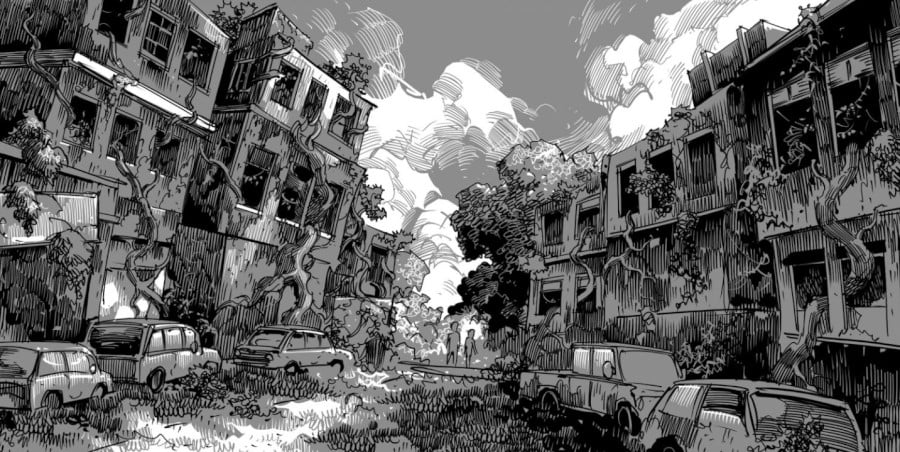
//
May I have Your Attention Please
This is a piece written as Mia on the Tryst Blog. It’s an illustrated personal essay about attention seeking and being a creative and sex worker, plus a little bit of lockdown and being nuts.
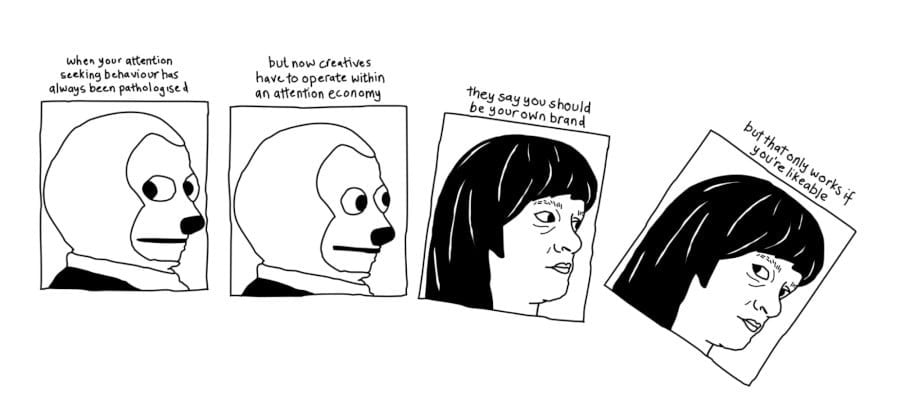
//
I made an art that is a pale representation of my feelings.
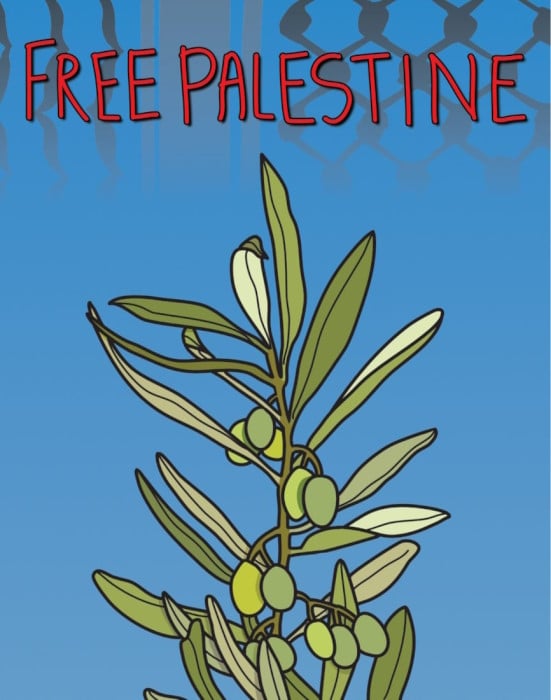
//
I’ve been illustrating articles (as Mia Walsch) on the Tryst Blog pretty regularly this year. Here are some of my fav pieces, and links to the articles, which are also rad.


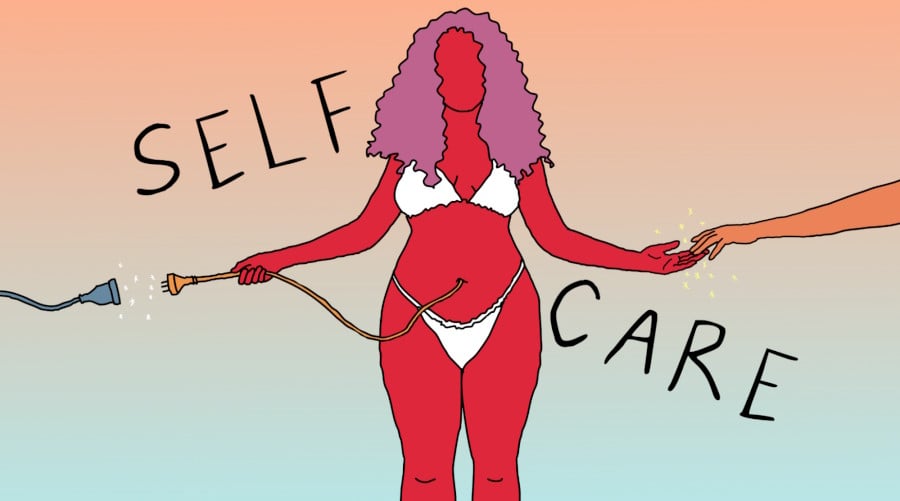
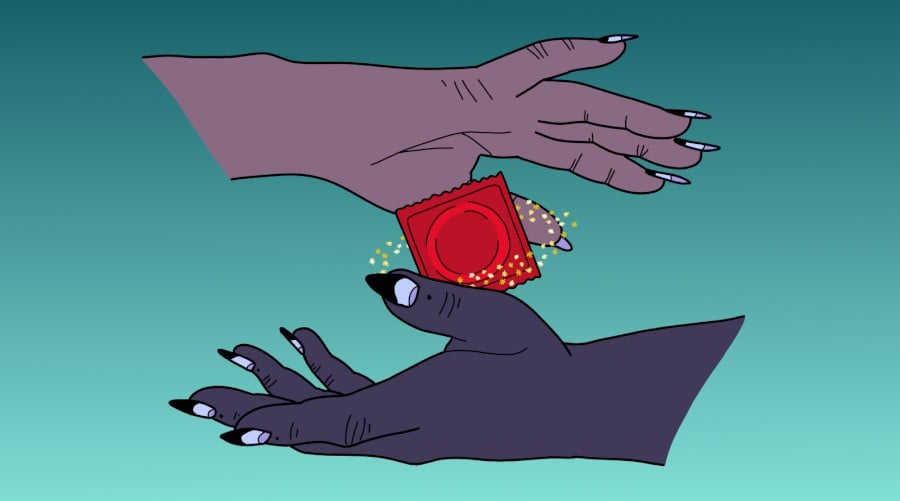
The Memes
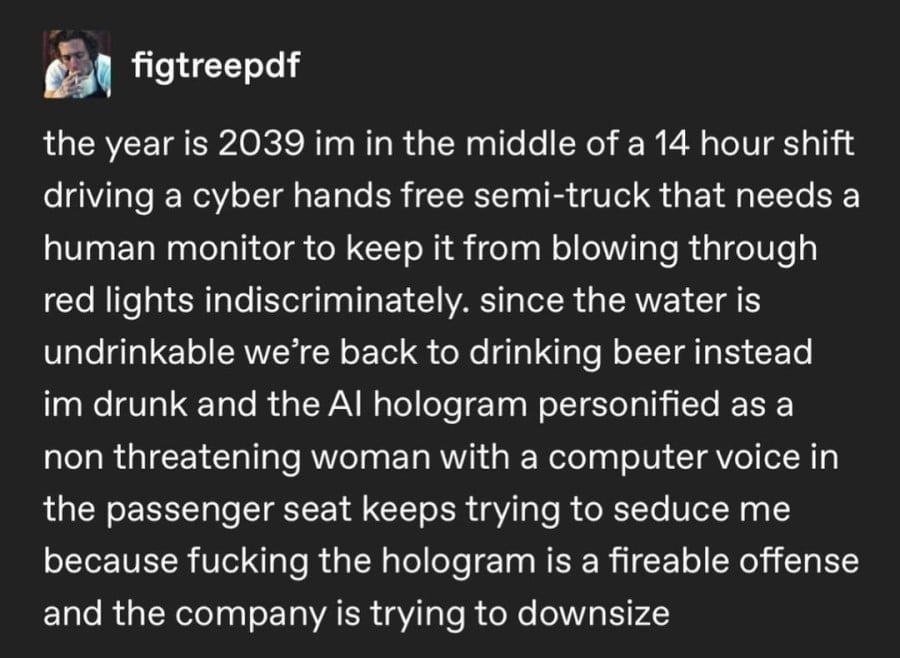
![sleep in too late? hungry, but late for work? try a large iced coffee and several bong rips [photos of an iced coffee, a jar of weed, and a bong] you certainly will not regret a large iced coffee and several bong rips](https://assets.buttondown.email/images/6b1d78b2-aeeb-4763-a1da-0ddec4fc4064.jpg?w=960&fit=max)
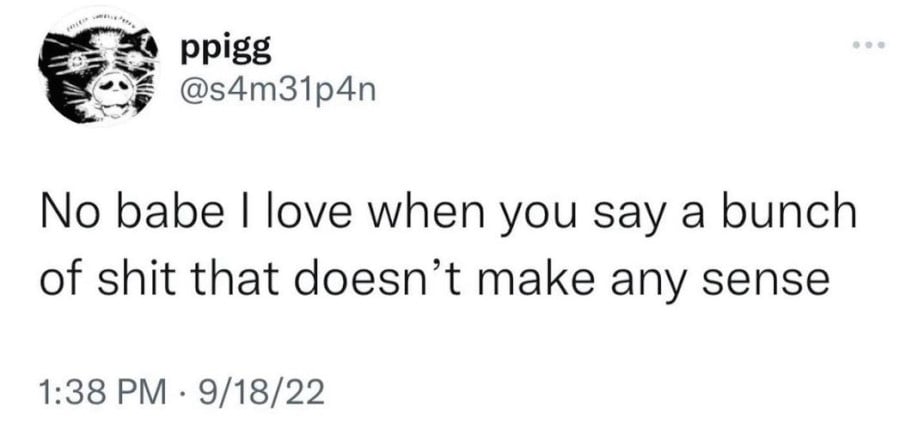
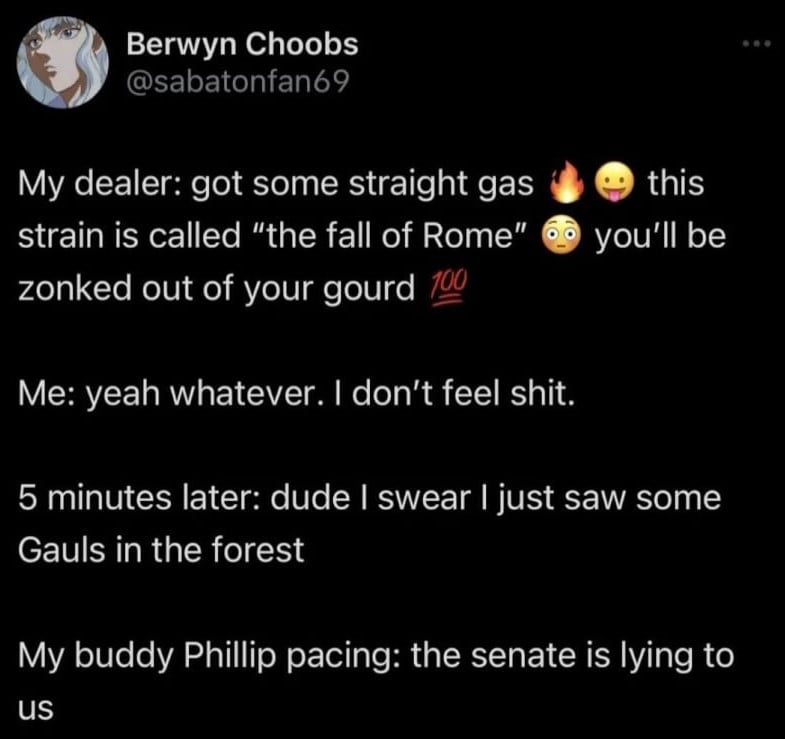

Corey J. White
author, voidwitch, bad milk blood robot
Climate Change and The Environment
‘Climate Optimism’ Is Dangerous and Irrational - Jag Bhalla at Current Affairs
We must be super clear about what current “optimistic” media preferences mean in terms of this specific risk: How likely are we to collectively mount a coherent and commensurate response to the multiple encircling crises when their foreseeable harms are de-emphasized in policy-shaping report summaries and filtered entirely out of upbeat media? One concrete illustration of our scientific uncertainties can be seen in a recent Washington Post article headlined “Scientists are baffled why oceans are warming so fast.”
This is a great (and long, and detailed) write-up on recent climate optimism and its basis in shoddy modelling. One interesting fact raised is that when the IPCC first mentioned carbon capture and storage in one of their reports it was a cautious suggestion concerning something that might one day be useful. Just a few years later though, it became “central to nearly all scenarios of the IPCC Fifth Assessment Report that are compatible with a 2°C target,” despite very little having been done in the way of research and development.
Related: We Can’t Have Climate Justice Without Ending Computational Colonialism - Jag Bhalla at Current Affairs
A great piece on climate "justice," massive wealth inequality, and the current lack of concern or progress toward addressing these problems.
//
Let Venice Sink - Catherine Bennett at Wired
This idea of “transformative continuity” means that places that have been damaged by climate change can serve as a “memory” and even a deterrent, to prevent the same thing happening in the future. It also allows us to discover new heritage values in a site as it evolves. Seekamp and Jo use the example of the Gardens of Ninfa in southern Italy, where a beautiful garden was cultivated in the ruins of an abandoned medieval city, giving the site a “renewed living heritage” that both celebrates its history and endows it with new values of biodiversity and a flourishing ecosystem.
On taking new approaches to heritage sites, both generally and as a response to the impacts climate change will have.
//
Listening To The Creatures Of The World - Karen Bakker at Noema
Perhaps the most novel aspect of these digital ocean governance schemes is their inclusion of nonhumans into decision-making. Simply by singing, a whale can turn aside a container ship: a digitally mediated decentering of the human.
Marine navigation becomes a matter of interspecies cooperation, as whales influence and constrain human action by controlling the decisions and movements of ship captains and fishers. Nonhumans, enabled by digital computation, are being enrolled in ocean governance, in stark contrast to the way that humans treated these species only a few decades ago, a grounded example of what Dipesh Chakrabarty calls the extension of “ideas of politics and justice to the nonhuman”: multispecies environmental regulation.
On some really interesting tech-mediated attempts at sharing shipping lanes (and the ocean generally) with our cetacean cousins. It also touches on other systems for monitoring animals, forests, the atmosphere, etc, and the language of animals.
It ends with something to speculate over:
Think of planetary computation as one means of eavesdropping on multispecies conversations, in which nonhumans can use digital technologies to convey information, influence human action and thus express a grounded form of voice. How might nonhuman preferences be incorporated into our decision-making frameworks, into new forms of Earthly politics? To begin formulating an answer, we’ll have to listen more closely to our nonhuman kin.
Related: How to Use AI to Talk to Whales—and Save Life on Earth - Camille Bromley at Wired
This piece is mostly about contemporary efforts to use machine learning to open up lines of communication between humans and other species, which is really interesting and potentially important work.
Science and Space
Time is not an illusion. It’s an object with physical size - Sara Walker at Aeon
Assembly theory treats time as fundamental and material: time is the stuff out of which things in the Universe are made. Objects created by selection and evolution can be formed only through the passing of time. But don’t think about this time like the measured ticking of a clock or a sequence of calendar years. Time is a physical attribute. Think about it in terms of Assembly, a measurable intrinsic property of a molecule’s depth or size in time.
This piece lays out a really interesting understanding of time… but at the same time (pun not intended), the fundamental idea is obvious - that time exists (simply? entirely?) so that things can grow and change. As Burroughs said: Time is what death needs to grow people in.
Still, it's an interesting way to think about time and space, and I'm sure more science-minded types will see some interesting possibility spaces opening up. It's a long read, but by about the halfway mark it starts to come together.
Geopolitics and Empire
Let The World Speak: An Interview with Shaj Mohan - at Protean Mag
The people of Israel will have to save themselves from this shameful and racist government which is committing genocide and other war crimes. They should also free themselves from American foreign policy goals, especially when American politicians are calling for the genocide of the Palestinians from within their legislative forums. It is now undeniable. I am sure that most of us have seen the video of children being made to sing genocidal songs. Do we need to pronounce what it is imitating? The Israeli prime minister said recently “The weak crumble, are slaughtered and are erased from history while the strong, for good or for ill, survive. The strong are respected, and alliances are made with the strong, and in the end peace is made with the strong.” Do we need to say what it reminds us of?
This one was just in the last issue of the newsletter, but I think it’s definitely worth another mention. A really fascinating interview with the Indian philosopher Shaj Mohan, largely but not entirely about the current war in (on) Gaza. Also covers India's relationship to Israel and to Palestinians, the UN, the implications of the label "terrorist", and there's a small section about resistance as opposed to struggle (the latter being the one that actually works), which I found canny.
Society and Culture
Language is at the heart of Indigenous community health - Erica X Eisen at Aeon
An interesting piece on the connection between language and health for indigenous peoples - looking at research into communities in both so-called Australia and North America. Different studies show a link to lower rates of cardiovascular disease, diabetes, and youth suicide in communities where indigenous languages are used more.
The decision to adopt one tongue and stop using another is not neutral; it is tied, inevitably, to power and prestige. This is precisely why linguists and activists alike now reject the framing of ‘endangered’ and ‘extinct’ languages in favour of ‘oppressed languages’. This term sets the role that forces like colonialism play in coercing shifts in language use front and centre, and helps us see that the struggle against them is at bottom a political struggle.
But it's not just health, of course - the survival of indigenous language and culture is of political importance.
//
Rewilding Mythology - Sophie Strand at Atmos
416 million years ago plants made it onto dry land. But these plants were unlike the vegetation we know today. Lacking roots, they had no way of accessing the rich nutrients in the soil. Luckily, mycorrhizal fungi in the soil collaborated with these early plants, acting as surrogate root systems for millions of years, slowly teaching them how to root into place and root into relationships. Over millions of years, plants “learned” how to develop their own roots from their symbiotic association with fungi. To this day, over 90% of plants depend on mycorrhizal connections in the soil. Every slice of leafy shade, every old-growth forest, every wildflower-woven field, every vegetable and fruit we eat today is the product of an underworld myth that far pre-dates Inanna’s descent deep into the Earth and Persephone’s seasonal stay in the land of the dead. Our first underworld myth is decidedly inhuman, documented not in a dry text, but the twining roots of the trees and plants we now walk alongside.
On the reality of our multispecies nature being represented in myth, ancient art, and evolution, and the way empire undermines these multispecies roots. Ends with a sort of call to action worth considering for any writer.
//
From Churches to Lifehouses - Adam Greenfield at Verso (via Inhabit)
[...] local communities should assume control over underutilized churches, and convert them to Lifehouses, facilities designed to help people ride out not merely the depredations of neoliberal austerity, but the still-harsher circumstances they face in what I call the Long Emergency, the extended period of climatic chaos we've now entered. This means fitting them out as decentralized shelters for the unhoused, storehouses for emergency food stocks (rotated through an attached food bank), heating and cooling centers for the physically vulnerable, and distributed water-purification, power-generation and urban-agriculture sites capable of supporting the neighborhood around them when the ordinary sources of supply become unreliable.
It's depressing to think that Lifehouses could become such fundamental community infrastructure precisely because Capital has captured and gutted or undermined so much of what we need as a society, but at the same time, if the State is going to abandon us (as it seems dedicated to doing) then these forms of mutual aid will be necessary. Not to mention that the community building aspects alone could be incredibly helpful in these times of continued fragmentation and "organised abandonment".
Books
Tell Me I'm Worthless by Alison Rumfitt
This book is brilliant, brutal, and incisive - unflinching horror that speaks to the current rise of fascism, with a specifically trans focus but insights that speak to broader politics of division. That said, it’s also a personal and human story, based in the relationship and rift between the two main characters, so it never comes across as polemical, which is a trap I could easily see a lesser writer falling into when trying to cover these issues.
It’s affecting, haunting, fucked up, and if anything in the above sounds interesting, you should track it down. There’s a well-deserved content warning though for rape, transphobia, racism, antisemitism and more though, so just be forewarned.
Movies
You Won’t Be Alone
The best witch horror film since The VVitch. You Won’t Be Alone is a slow-burn Macedonian-language horror film written and directed by Goran Stolevski, a Macedonian born Australian-based filmmaker who has earned a lot of recognition for his short films and is now branching out into feature length projects.
In some ways, You Won’t Be Alone has the feel of a dark fairy tale - an infant girl is marked by a witch, and her voice stolen. The girl’s mother hides her in a cave so that the witch won’t be able to find and claim her, leading the girl to grow up mostly feral. Of course the witch still finds the girl, but the girl is more interested in the world that was taken from her by her mother’s actions than the powers the witch can offer.
We’re given an insight into her thoughts through her internal monologue, her lack of education and socialisation rendering her language poetic, her every thought tinged with a deep longing for understanding and connection. I won’t say much more than that because it’s a brilliant movie, but the actors are all phenomenal in the ways they embody the girl, especially Sara Klimoska.
//
The Day Shall Come
I had somehow missed this 2019 film until recently, which is odd because it's sort of a spiritual successor to Chris Morris' Four Lions, which is a film I adore. Where Four Lions follows a group of homegrown would-be jihadists in the UK who are their own worst enemies, The Day Shall Come is about a delusional preacher named Moses and the FBI's desperate attempts to entrap him in a domestic terrorist plot of their own devising. The only problem is that the naïve and conscientious Moses is against guns.
The film says it's "based on a hundred true stories," and if you've been paying attention to US domestic terrorism busts over the past 15 or so years, you'll know exactly how true that really is. It's a film of clashing absurdities - Moses' steadfast belief in his movement and in his holy powers against the contortionist machinations of the FBI.
It's brilliant, hilarious, and woefully underrated. It might also be hard to track down, but you should do it.
The Memes
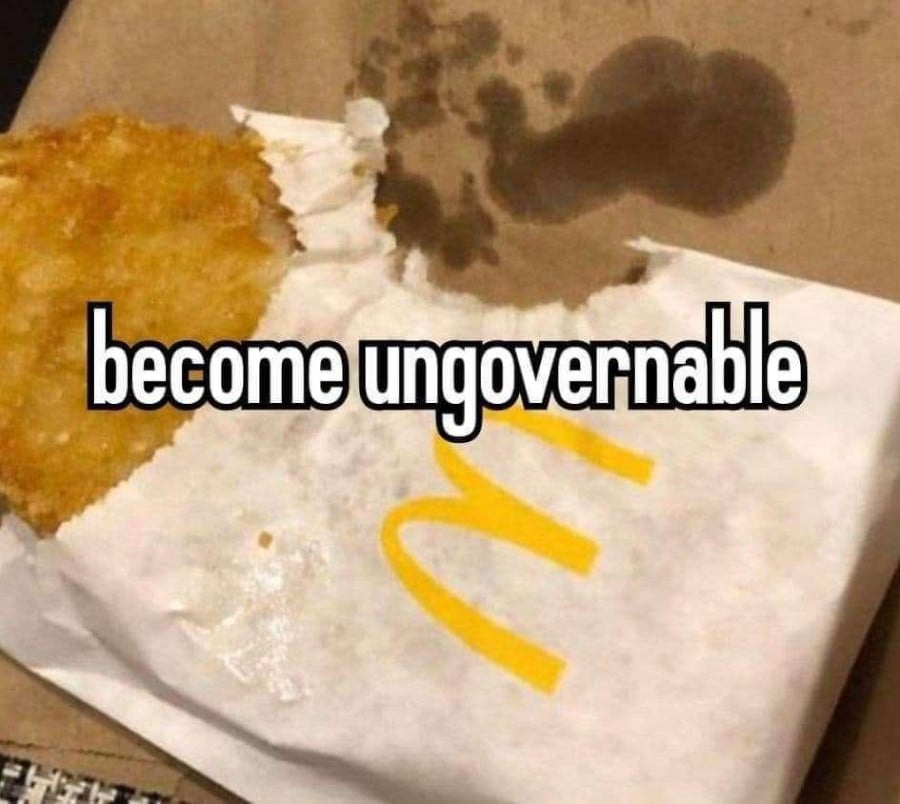
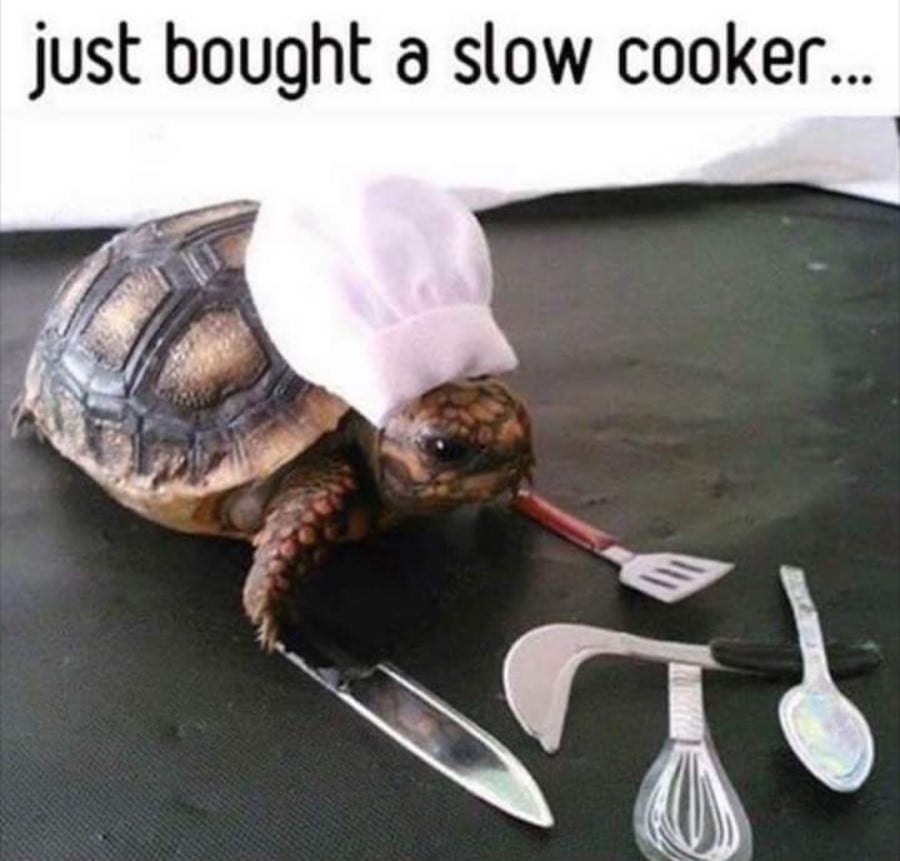

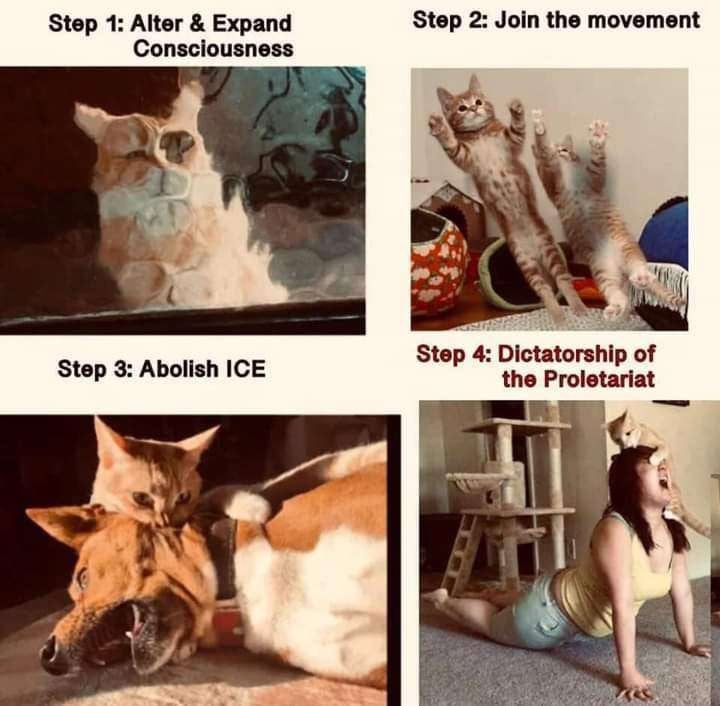
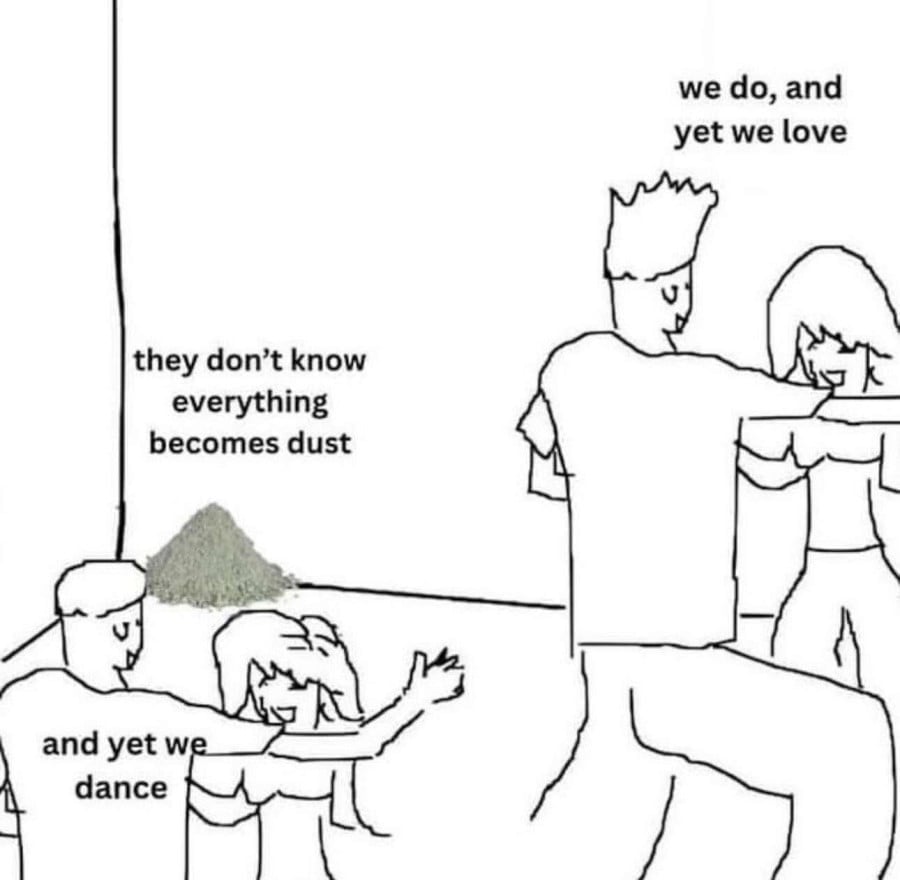
Lidia Zuin
Journalist, MA in semiotics, and PhD in Arts. Sci-fi writer, futurology researcher and essayist. @lidiazuin
Climate Change and The Environment
Finding Hope In The Dark Power Of Fungus - Joanna Steinhardt at Noema
Equal parts scientific textbook, instructional manual and spiritual manifesto, “Mycelium Running” is focused on relatively low-tech, ecologically beneficial applications for fungi, interwoven with what can only be described as a mycological view of life and the universe. Stamets is gifted at waxing lyrical about mycelium, which he describes as “vast sentient cellular membranes” that we walk on in every “lawn, field or forest floor.” In the opening chapter, he posits that mycelium is “the living network that manifests the natural intelligence imagined by Gaia theorists.” (“Gaia’s internet,” he calls it.) Even the fabric of the universe looks like mycelium. He writes:
Enlisting fungi as allies, we can offset the environmental damage inflicted by humans. … I believe we can come into balance with nature using mycelium to regulate the flow of nutrients. … Now is the time to ensure the future of our planet and our species by partnering, or running, with mycelium.
One of the most interesting reads I had this year in the topic of environment. Since 2022, I've been growing more and more interested in fungi, and this was a surprising read as I also have experience working with foresight and mapping emerging technologies… this was something that popped up many times in my research for the past years.
Geopolitics and Empire
How E-girl influencers are trying to get Gen Z into the military
We’ve entered an era of military-funded E-girl warfare. In what would’ve felt unimaginable only a few years back, influencers are the hottest new weapon in the government’s arsenal. Here, cosplay commandos post nationalist thirst traps to mobilise the SIMPs, attracting the sort of impressionable reply guys and 4chan lostbois who message “OMG DM me🔥” on every post. Sanitising the harsh realities of US imperialism with cute E-girl-isms, it promotes the sort of hypersexualised militarism that reframes violence as something cute, goofy and unthreatening – a subversion of the beefy special forces stereotype in the mainstream. Arguably far more unsettling than any 20th-century CIA covert ops, there’s no hush-hush to this operation. Rather it hides in plain sight, capitalising on online irony to lull you into a false sense of security with #relatable content and the sort of tapped-in memery that can only come from years of being terminally online (she’s just like me, fr).
Another scary but absolutely interesting read. I haven't been following memes and trends too closely more recently – I guess I'm growing too old and boring? But this one really surprised me because it's so obvious and yet so unbelievable. I wonder how things are going now with Israel and Gaza at war.
Tech and Design
Will A.I. Become the New McKinsey? by Ted Chiang The New Yorker
So, I would like to propose another metaphor for the risks of artificial intelligence. I suggest that we think about A.I. as a management-consulting firm, along the lines of McKinsey & Company. Firms like McKinsey are hired for a wide variety of reasons, and A.I. systems are used for many reasons, too. But the similarities between McKinsey—a consulting firm that works with ninety per cent of the Fortune 100—and A.I. are also clear. Social-media companies use machine learning to keep users glued to their feeds. In a similar way, Purdue Pharma used McKinsey to figure out how to “turbocharge” sales of OxyContin during the opioid epidemic. Just as A.I. promises to offer managers a cheap replacement for human workers, so McKinsey and similar firms helped normalize the practice of mass layoffs as a way of increasing stock prices and executive compensation, contributing to the destruction of the middle class in America.
This is super interesting. Some people try to imagine how would it be if AI was the president, but sometimes we forget that the market controls much more of our reality than real, partidarian politics. If we are currently concerned with biased, hallucinatory AI, imagine if we never get to finetune it enough but give it the power to be a consultant and guide the market (even more) with no human at the end?
Labor and Economics
The cure for consumerism - Rob Horning
In changing people’s relation to their own appetites, drugs like Ozempic will also affect their social motivations, and what they want in relation to what other people want or have to offer. If personal appetite is eliminated as a use value, consumption will become more a matter of social signification, if that is even possible. (See Baudrillard’s “The Ideological Genesis of Needs,” where he claims use value is a fiction and that “if the system could function without feeding its workers, there would be no bread.”) So perhaps a drug that suppresses appetites will actually make consumerism worse, as no one will have “real” reasons to buy anything but will be shopping and consuming only to have a social identity, unimpeded by “natural” constraints.
This super interesting article brought up by CJW summarizes much of my feelings for Ozempic besides bringing heroin chic back. It's not just about being thin but about consuming, being rich, having the resources to have that body – as much as in the old days the dream body was a fat one, because only a few could afford that. I hate it here and I have never not hated.
Books
Septology by Jon Fosse
The fact that this dude won the Nobel of literature by writing a fanfiction of his own lifestory is just chef's kiss. But jokes apart, it's a fucking rad book when you think of the way Fosse writes: barely no paragraphs, no full stops at all. I know other authors have done this before, but here is a flux of consciousness that won't spend too much time on describing really minimal things like Tolkien would… it's about putting you in a sort of mantra, a literary high that makes you meditate and join the anxious, confused, almost schizophrenic mind of the narrator. My favorite this year.
Movies
Barbie by Greta Gerwig
I haven't watched many movies this year, which is really shameful, but this one really impacted me. I knew it was going to be something special as this was another of Greta's creations, but I didn't know it would make me cry in the movies. Ok, as if I wasn't an easy crier, but fun fact is that before becoming a goth teenager, I was obsessed with Barbie and only dressed in pink. And, no news, I also had issues with my body, eating disorders, difficult communication with my mother etc etc. All these things really resonated to me: America and her daughter' struggles, the realization of death and how this prompts a new perspective on life and existence… It's a pink tinted film, but it's dark as fuck. I love it.
Music
Deftones
It's not a discovery, for sure, but this year I spent many hours listening to them – at least that's what my Spotify wrapped says. It's funny because I never paid so much attention to them when I was a teen, besides the song Minerva that really caught my attention while I was listening to the "alternative rock" radio station on cable TV (I know, Gen Z, this doesn't make sense at all). And of course MTV ads featuring snippets of the music video Back to School were also a strong nostalgic trigger, but I found in Knife Prrty a new comfy song and found myself riding my bike in the idyllic scenery of Malmö outskirts listening to them. Good old days, now that I moved to the city center.
CJW: And that's it for another year. Thank you as ever for joining us on this journey. Much love to you all.
You just read issue #241 of Nothing Here. You can also browse the full archives of this newsletter.